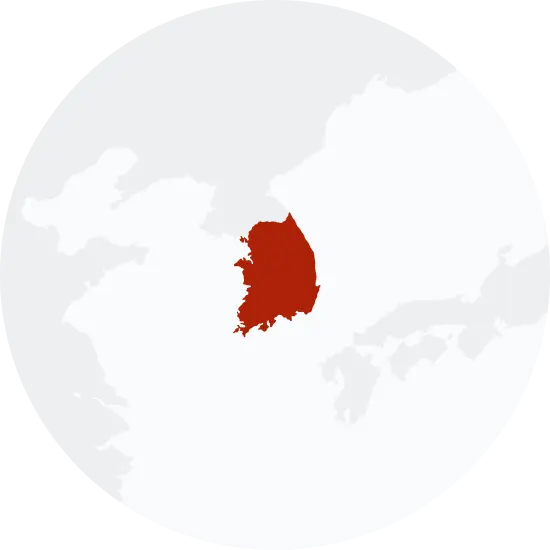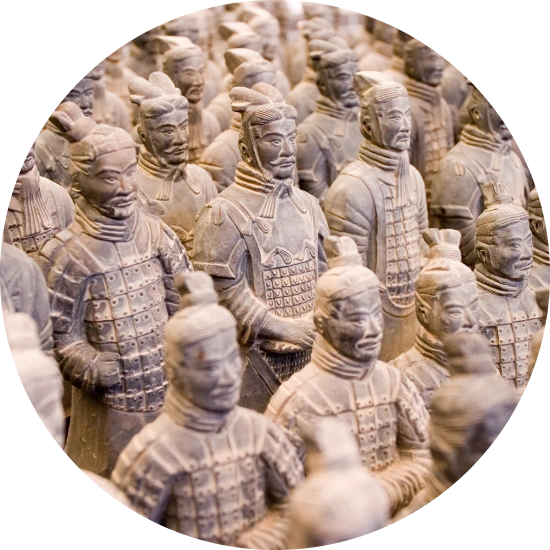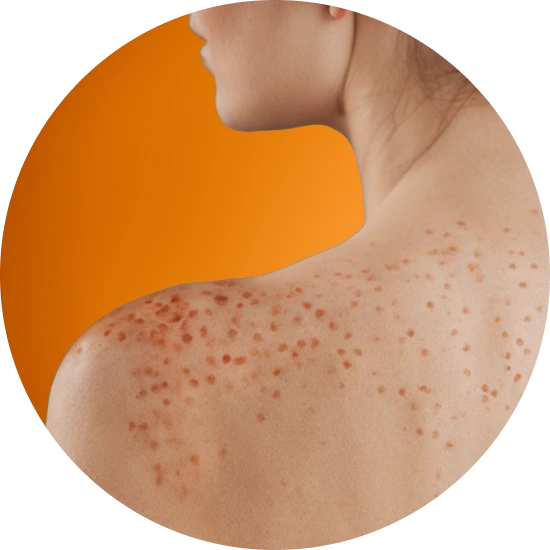Explore the Family Name Han
How common is the last name Han in the United States?
According to the Decennial U.S. Census data, the popularity of the surname "Han" has significantly increased between 2000 and 2010. In 2000, Han was ranked as the 1617th most popular surname in the United States, with a count of 20,318 individuals bearing it. By 2010, the rank had improved to 1182nd, reflecting a 26.9% increase in popularity. The total count of people with this surname also grew by approximately 46.9%, reaching 29,847 individuals. This change resulted in an increase from 7.53 to 10.12 per 100,000 in the proportion of US residents with this surname, indicating a 34.4% rise.
| 2000 | 2010 | Change | |
|---|---|---|---|
| Rank | #1,617 | #1,182 | 26.9% |
| Count | 20,318 | 29,847 | 46.9% |
| Proportion per 100k | 7.53 | 10.12 | 34.4% |
Race and Ethnicity of people with the last name Han
Diving into the ethnic identity associated with the Han surname, the Decennial U.S. Census data shows that it is predominantly associated with those identifying as Asian/Pacific Islander. Between 2000 and 2010, this group increased its representation among individuals with the Han surname from 90.59% to 92.67%. Conversely, the proportions of Han surnamed individuals who identified as White or Hispanic fell by 26.77% and 11.83% respectively, while the percentage identifying with two or more races decreased by 20.56%. The Black community maintained a stable 0.50% representation among Han surnames across both years. Lastly, there was a slight increase (16.67%) in the proportion of Han surnamed individuals who identified as American Indian and Alaskan Native, though they represent only a small fraction of the overall count.
| 2000 | 2010 | Change | |
|---|---|---|---|
| Asian/Pacific Islander | 90.59% | 92.67% | 2.3% |
| White | 5.79% | 4.24% | -26.77% |
| Two or More Races | 2.14% | 1.7% | -20.56% |
| Hispanic | 0.93% | 0.82% | -11.83% |
| Black | 0.5% | 0.5% | 0% |
| American Indian and Alaskan Native | 0.06% | 0.07% | 16.67% |
Han ancestry composition
23andMe computes an ancestry breakdown for each customer. People may have ancestry from just one population or they may have ancestry from several populations. The most commonly-observed ancestry found in people with the surname Han is Korean, which comprises 43.8% of all ancestry found in people with the surname. The next two most common ancestries are Chinese (41.4%) and British & Irish (3.1%). Additional ancestries include Vietnamese, Manchurian & Mongolian, French & German, Eastern European, and Indonesian, Thai, Khmer & Myanma.
Ready to learn more about your ancestry? Get the most comprehensive ancestry breakdown on the market by taking our DNA test. Shop 23andMe
| ANCESTRY BREAKDOWN | COMPOSITION |
|---|---|
| Korean | 43.8% |
| Chinese | 41.4% |
| British & Irish | 3.1% |
| Other | 11.7% |

Possible origins of the surname Han
Your DNA provides clues about where your recent ancestors may have lived. Having many distant relatives in the same location suggests that you may all share common ancestry there. Locations with many distant relatives can also be places where people have migrated recently, such as large cities. If a large number of individuals who share your surname have distant relatives in a specific area, it could indicate a connection between your surname and that location, stemming from either recent ancestral ties or migration.
Based on 23andMe data, people with last name Han have recent ancestry locations in South Korea and China.
| RECENT ANCESTRY Location | Percentage |
|---|---|
| Seoul, South Korea | 43.10% |
| Busan, South Korea | 27.50% |
| Daegu, South Korea | 21.70% |
| Jeollabuk Do, South Korea | 20.90% |
| Gyeongsangnam Do, South Korea | 20.60% |
What Han haplogroups can tell you
Haplogroups are genetic population groups that share a common ancestor on either your paternal or maternal line. These paternal and maternal haplogroups shed light on your genetic ancestry and help tell the story of your family.
The top paternal haplogroup of people with the surname Han is O-F1204, which is predominantly found among people with East Asian & Indigenous American ancestry. Haplogroup O-F1204 is descended from haplogroup O-M1359. Other common haplogroups include O-F46 and O-F11, which are predominantly found among people with East Asian & Indigenous American and East Asian & Indigenous American ancestry. Other surnames with similar common haplogroups are: Chang, Chung, Sun, Kim, Wang, Yang, Kang, Li, Jin, Zhang.
The most common maternal haplogroups of people with Han surname are: A4, F2, D4. These most commonly trace back to individuals of East Asian & Indigenous American and European ancestry.
 Paternal Haplogroup Origins O-M1359
Paternal Haplogroup Origins O-M1359
Your paternal lineage may be linked to the Yayoi
Haplogroup O1b2a, a branch of haplogroup O, is closely related to several haplogroups that are commonly found in Japan. Haplogroup O is closely associated with Kyushu, Japan's third largest island, and makes up over half of all men in Japan. Although haplogroup O is prevalent in Japan, it likely only entered Japan during the Yayoi expansion about 2,300 years ago. During the Yayoi expansion, people entering from the Korean Peninsula brought wet rice agriculture, weaving technology, and metalworking technology to Japan. The Yayoi expansion began on the island of Kyushu, where haplogroup O is very common today. It is possible that some of the early members of O1-F3356 were involved in this major shift, which quickly and dramatically altered Japanese culture.
Your maternal lineage may be linked to the builders of the Terracotta Army
Qin Shi Huang, who unified warring states to become the First Emperor of China and founded the Qin Dynasty, ruled the Chinese state of Qin from 247 BC to 210 BC. In addition to his political feats, his reign is known for the massive construction projects, including his mausoleum in the Shaanxi province of central China, which began construction in 246 BC. To aid him in the afterlife, 8,000 perfectly life-like soldiers were crafted out of molds and clay and placed at guard over his tomb: his own Terracotta Army.An estimated 700,000 workers were involved in the mausoleum construction alone, and in 2003, hundreds of skeletal remains were unearthed near the mausoleum. Curious about the ethnic origins of these men, a group of Chinese scientists decided to examine their maternal haplogroups. They found that some of these workers belonged to haplogroup A, and that the group had come from a variety of places across East Asia.

What do people with the surname Han have in common?
Spoiler alert: it's complicated. People with the same last name are usually no more genetically similar than a randomly sampled group of people from the same population. That said, people with the same surname are more likely to have similar ancestries than randomly sampled individuals. The reason is the tendency of people with similar cultural or geographical backgrounds to preferentially mate with one another. That's why people who share a surname may be more likely to share traits and tendencies in common than people within the general population. Check out the percentages below to see the prevalences of tastes, habits, and traits of people with your surname compared with prevalences among 23andMe users.
Preferences
Traits
Habits
Wellness
Are health conditions linked to the last name Han?
The short answer is that, if there is an association between surname and health, it's usually more about your ancestry than your name. Individuals with a given surname are no more genetically similar than the general population but often have similar ancestries. The populations of people associated with those shared ancestries often have sets of genetic variations, also known as alleles, in common. Some of those alleles are associated with a greater likelihood of developing certain diseases.
Disease variant frequency by ancestry
Disease allele frequencies in populations associated with the surname Han are shown below. Important Note: not everyone with a disease allele will develop these health condition






















